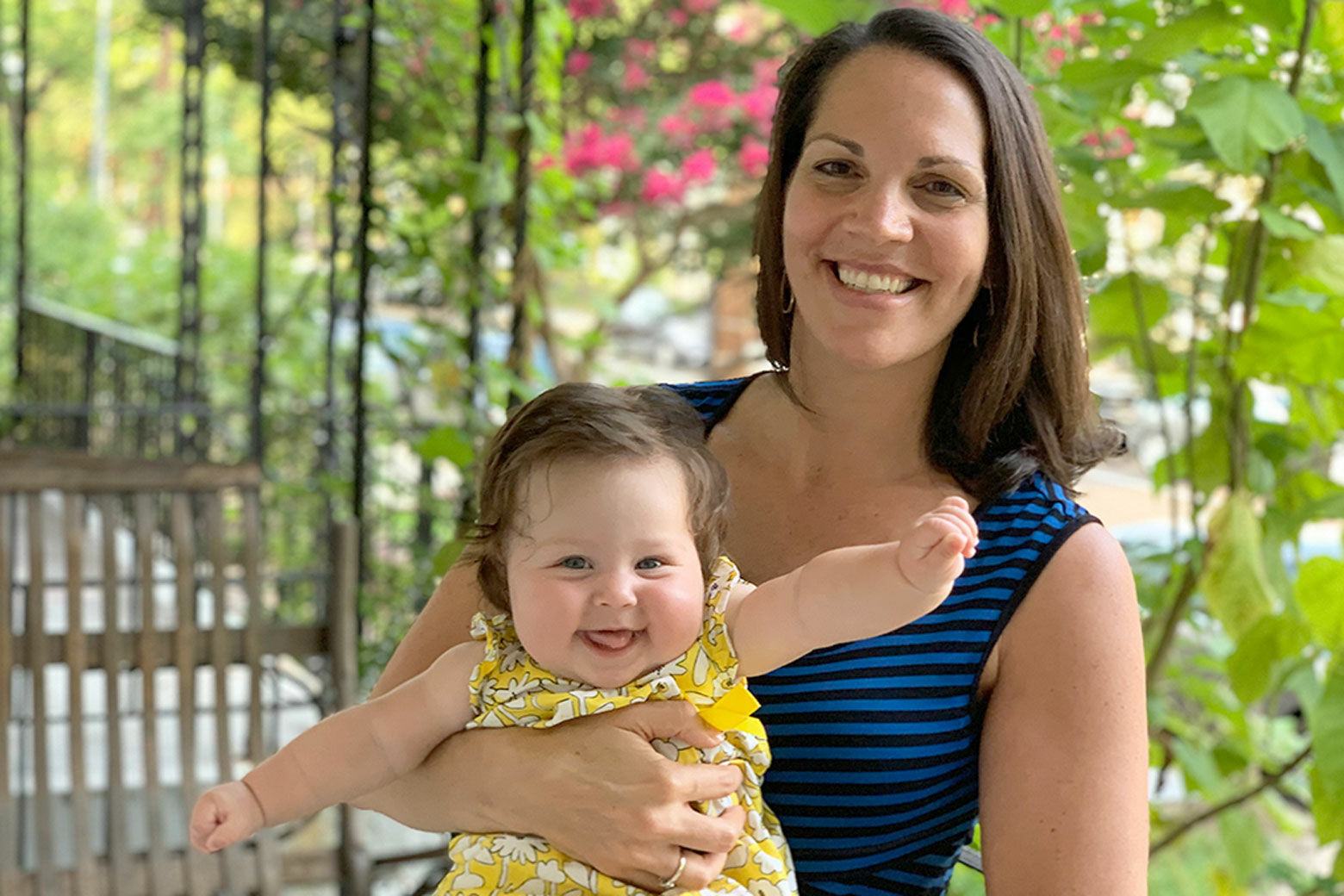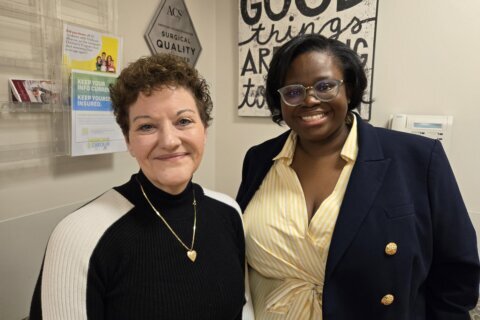
Triple-negative breast cancer is a particularly hard form of the disease to treat, but doctors have a new tool after clinical trials that included a volunteer from D.C.
“I was happy to be part of the community of volunteers and patients who I imagine, like me, believe wholeheartedly in the importance of medical research,” said Brandi Durkac Farmer, 42.
This month, Farmer is celebrating five years cancer-free after helping test the drug Lynparza against recurrence of triple-negative breast cancer in a trial at the Georgetown Lombardi Comprehensive Cancer Center.
Farmer volunteered after undergoing chemotherapy and surgery, and saw it as a way of giving back.
“I knew I was the beneficiary of those who have gone before me and done clinical trials like this. And I was eager, in part, to be able to give back to that community,” she said.
Lynparza has been approved for use against some forms of breast cancer, as well as ovarian, prostate and pancreatic cancers.
It’s a new application, which means everyone newly diagnosed with breast cancer should undergo genetic testing to see whether the drug could help them, said Dr. Claudine Isaacs, who leads the Clinical Breast Cancer Program at the Lombardi center.
“We need to be sure that we identify who has a BRCA1 or a BRCA2 mutation, now that we have this incredibly impactful treatment that is really very, very targeted,” Isaacs said.
Women who got the drug in addition to standard therapy had an extra absolute benefit of about 8%, with a follow up of about two-and-a-half to three years, in terms of their risk of developing recurrence of their breast cancer. Isaacs said those are exciting findings.
“While it’s only about 8%, that’s still a really big number. And it really had a significant impact that’s over and above the benefit that they get from standard chemotherapy. Or if they had hormone receptor-positive breast cancer, they were also getting endocrine therapy. So this is an additional benefit,” she said.
Isaacs said there’s ongoing research with Lynparza for use in other settings or combinations — for instance, for use in conjunction with immunotherapy.
Farmer was pregnant when diagnosed with triple-negative breast cancer.
“And I lost the pregnancy, which was the hardest thing for me,” Farmer said. “And it was very hard to feel that I didn’t know what my future was going to look like, to navigate two such enormous challenges at the same time.”
But now, her outlook going forward is optimistic.
“There has been such progress in being able to uncover the genetics underlying certain cancers,” she said.
Clinical trials continue, “and there are experts out there in oncology and fertility and a lot of cooperation across the medical community to help people like me that have been through what I’ve been through.”








